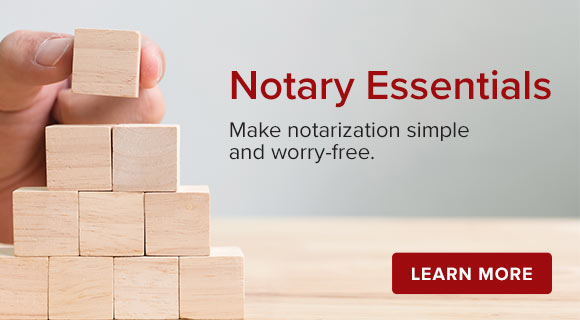Updated 6-3-24. Every document you notarize is important. But if a careless mistake is made on a notarization involving a signer's property, finances or medical treatment, the penalties and liability can be much more severe if the Notary is found to be at fault. In these situations, you must take extra care to properly complete each step in the notarization.
High-risk documents
The following types of documents present a higher potential risk of fraud:
- Real estate documents are risky because they involve high-value property, such as homes or land, and con artists often forge signatures on deeds or other documents to take out fraudulent mortgages or sell a property out from under the rightful owners.
- Powers of attorney are risky because if forged, they can give a person control over another individual’s bank accounts, property, and even medical treatment. Forging powers of attorney is becoming more common as more people reach retirement age.
- Estate documents are risky because they determine who gets a person’s assets at death. Those who are left out may look for ways to sue a Notary who may have improperly notarized the signature.
Notarizing any document is like driving a car. You should always exercise caution behind the wheel, but when driving in a school or playground area you instinctively slow down and take extra precautions.
Improperly notarizing a parental permission slip may not be that risky; however, improperly notarizing a quitclaim deed or mortgage on a home property could result in a bank loaning hundreds of thousands of dollars to an imposter who has no intention of paying it back.
With high-risk documents, always take extra care when identifying the signers, completing the Notary certificate properly, and recording the Notary journal entry.
Bill Anderson is Vice President of Government Affairs with the National Notary Association.


Related Articles:
Personal Appearance: The best protection for Notaries
5 common mistakes that can lead to legal problems
Additional Resources:
NNA Hotline